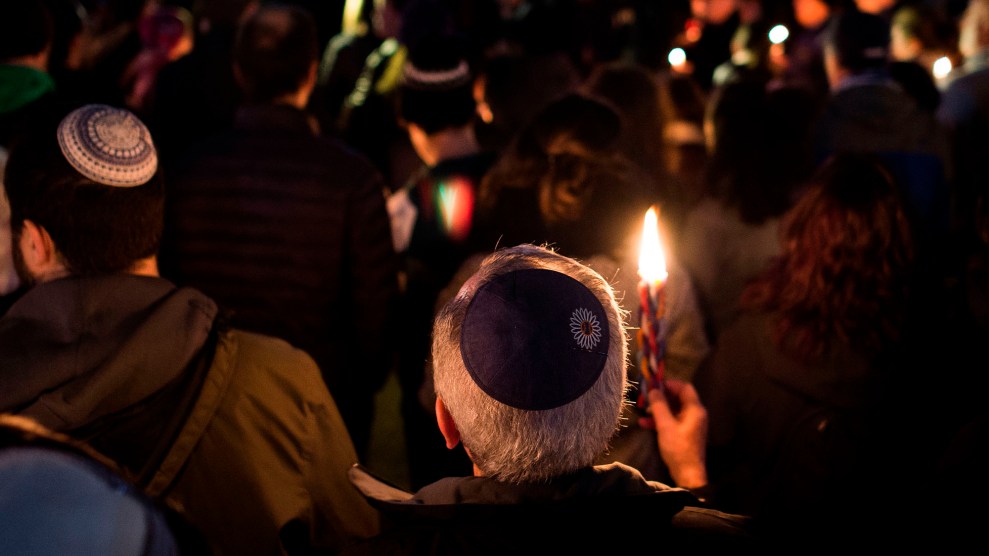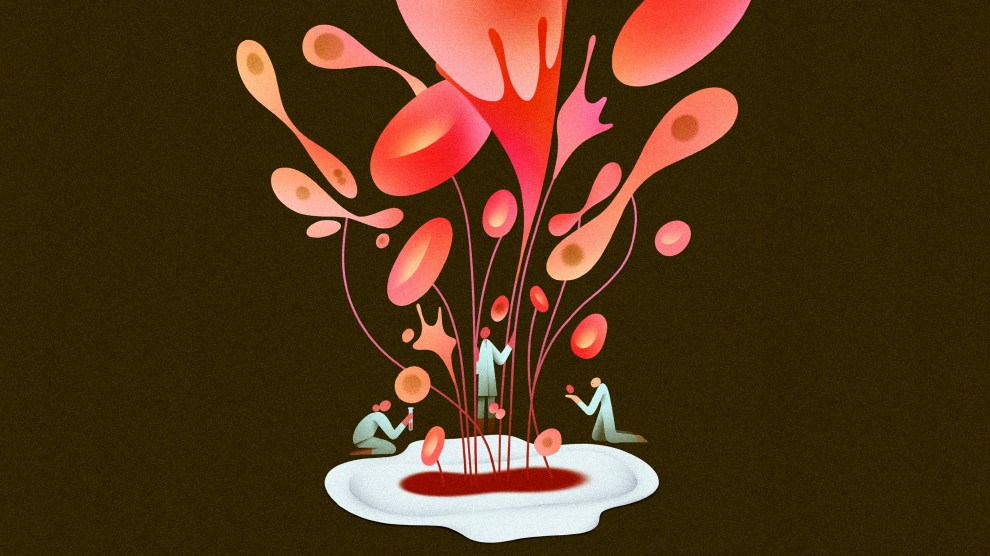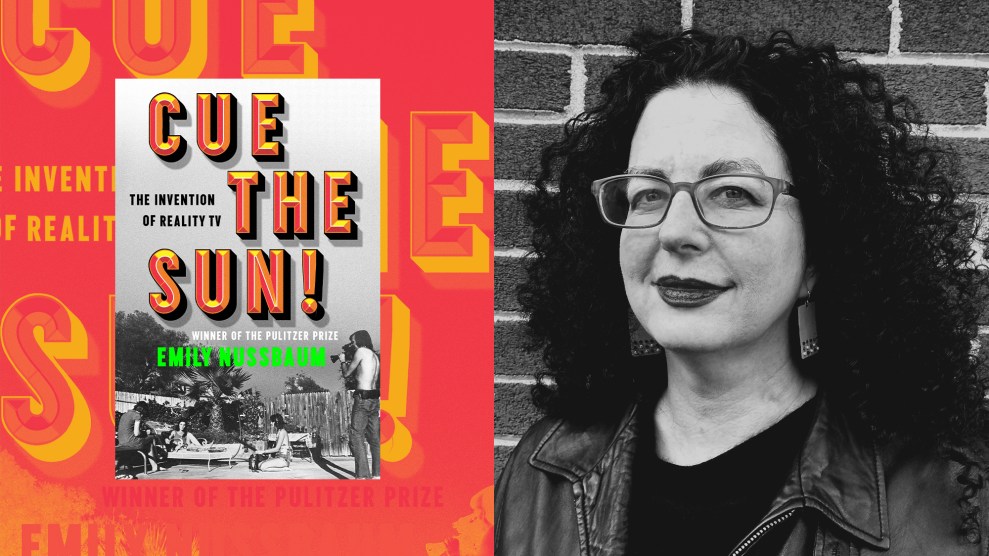
Members and supporters of the Jewish community come together for a candlelight vigil in Washington, DC.Andrew Caballero-Reynolds/AFP/Getty
After he heard the sirens, Tim Hindes thought about what he could do to help his city after the mass shooting that killed 11 people at Pittsburgh’s Tree of Life synagogue on Saturday.
He decided to create a “Stronger Than Hate” banner, replacing one of three shapes on the old US Steel logo—now popularized by the Pittsburgh Steelers—with a Star of David. He shared the image on Facebook, commenting: “I see every posting of this image as a WIN for love and a strike against hate.”
Soon, the image spread across the internet: Stars like Michael Keaton and Joe Manganiello shared the message, and it also showed up on banners during Sunday’s Steelers vs. Cleveland Browns football game.
“In all honesty, it’s not that complex of a symbol,” Hindes told the Pittsburgh Post-Gazette, “but it’s that simplicity that sort of resonated.”
The banner was just one part of an outpouring of love for the community: The Jewish Federation of Greater Pittsburgh set up a fund to help the victims and families, and United Way promised to match donations up to $100,000. Two American Muslim groups, in a separate drive, raised more than $195,000 for the Jewish victims and families.
“Putting our religious differences or even your political differences aside, the core of all of us is that we have a shared humanity,” Tarek El-Messidi, an activist who created the Muslim fundraising campaign, told the New York Times.
Bigots have targeted both faiths, he added. “The shared discrimination has brought both communities closer.”
Welcome to Recharge, a weekly newsletter full of stories that will energize your inner hellraiser. Sign up at the bottom of the story.
-
She may have stopped another mass shooting. Police said they thwarted a Kentucky man who posed a “credible and imminent threat” to two school districts.
The way authorities tracked him down? Through Koeberle Bull, a mother of three in New Jersey who contacted police after receiving a chilling Facebook message from the man, Dylan Jarrell. The 20-year-old had called her a “wanna be” black woman and told her that he hoped her biracial children “gets hung for you being so stupid.”
“I just hope more people speak out,” Bull told the Washington Post. “We’ve got to give our kids a fighting shot, or our kids are going to die, and our future will die with them.” (Washington Post)
-
How one veteran got by—with a lot of help from friends. With nowhere to go, and the temperatures outside in the forties, Norman Franks thought a Veterans Affairs hospital in Massachusetts would have to take him in.
Nope. Clad in shorts and a T-shirt, the Navy vet spent several nights shivering on the ground outside, wrapped in a tarp he found in a VA dump truck. He lived the next four months in a tent on a nearby Air Force base, helped by members of a local American Legion and a Catholic parish.
Then a congressman’s staff took interest and made calls on Frank’s behalf. The VA also pitched in and provided him with a tenant voucher, as well as other aid. Franks, who did prison time for armed robbery and struggled with an addiction to crack cocaine, is now in a sparsely furnished apartment, studying for a heavy equipment driver’s license, and eager to help other vets who may find themselves homeless.
“If I can help just one other vet from being in this position, then this has been worth it,” Franks said. (Boston Globe)
-
A monumental recovery. During Labor Day weekend of 2016, Damari Hendrix’s 6-foot 5-inch frame crumpled after he was shot in the head in Chicago. Brain surgery followed, and the doctors warned his mother: This may or may not save his life.
But within a year, Hendrix was walking. Even running. Even playing basketball. Last winter, he improved each week—and finished the season as his high school basketball team’s second-highest rebounder and third-highest scorer.
At 18, and with his senior year ahead of him, Hendrix is still playing better and better, even as he suffers several physical setbacks, including seizures and lapses in concentration. He said he’d be happy to play basketball at any college. Mostly, he is grateful. He thought he’d be in a wheelchair the rest of his life.
Thanks to Recharge reader Willie Weinbaum for the suggestion. (The Undefeated)
-
Acts of love. And since it’s been a trying week, here are more stories of people coming together: Mexicans gave food and clothing to northbound Central Americans fleeing poverty and violence. One of America’s most hallowed cathedrals provided a final resting place for Matthew Shepard, a gay college student who was slain two decades ago in a hate crime. Migrant children in Greece enjoyed brief escapes from their crowded refugee camp at a new playground that offers free evening movies. And American PBS viewers chose a classic about standing up to racial injustice and helping others as their most popular novel.
Have a Recharge story of your own or an idea to make this column better? Fill out the form below or send me a note to me at recharge@motherjones.com.
















